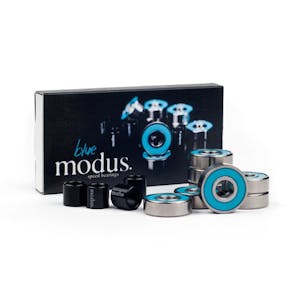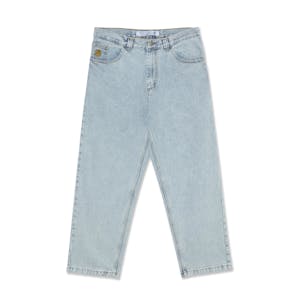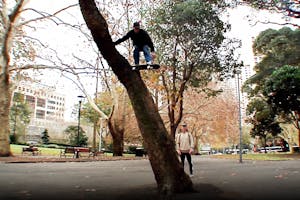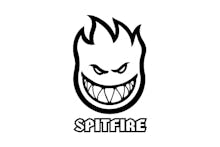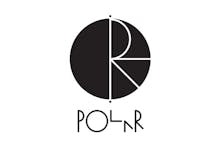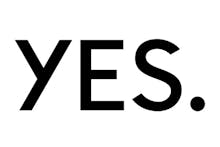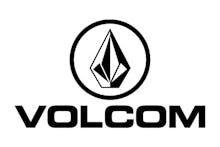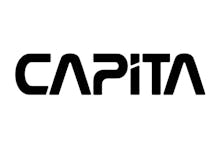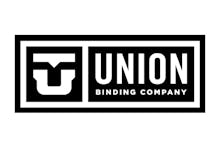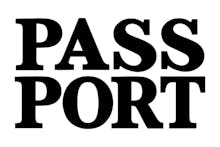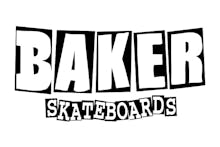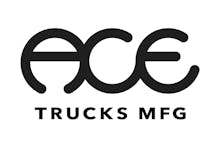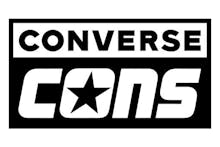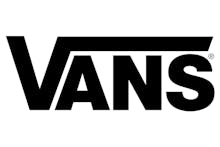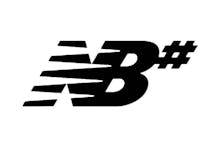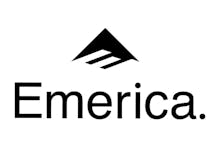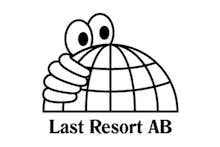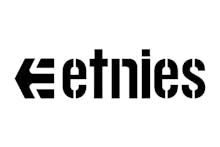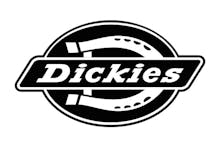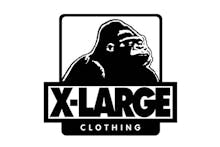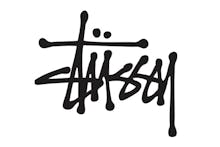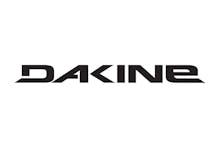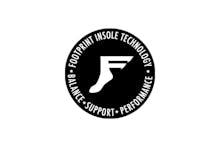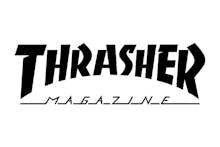Exclusive Interview: Tony Hawk
An in-depth chat with the greatest of all time
Words and photos: Riely Walker
*This interview took place during February 2014, a few days before Tony skated to victory at Vans BOWL-A-RAMA 2014.
Strolling down the sidewalk in Downtown LA, you hear a familiar sound behind you, followed by a swift breeze whooshing past your ear. The unmistakeable calling card of a skateboarder. Across the street you see another one, and another. It’s a similar scene in London, Paris, Moscow and Tokyo. Previously dismissed as a passing fad to be scoffed at by the mainstream, skateboarding is now ubiquitous — and in many ways, its popularity can be attributed to the actions of one man; Tony Hawk.
Hawk's influence in elevating skateboarding’s international profile is so vast that his name has become synonymous with the sport itself — and as I found out, he continues to support the booming industry more than ever.
Which brings me to a café in Bondi, where I’m shooting the shit with Tony Hawk. It’s difficult to describe the thoughts that run through my mind as I sit down with the most influential figure in skateboarding’s history. Never in my life could I have expected anything close to this occurring. But, as I learnt during my time with the Birdman, neither could he.
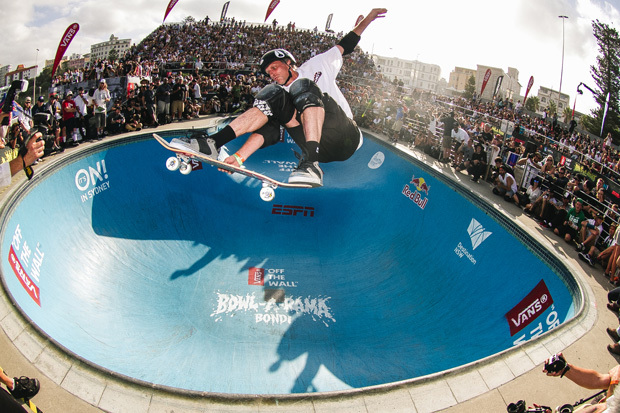
Tony Hawk, Vans BOWL-A-RAMA Bondi 2014
“I could never have predicted how big skateboarding would become,” he tells me.
“When I first started skating, it was a genuine rule that you had to stop skating once you got out of high school, because there was no living to be made out of it. Back then nobody was skating into their 20s, let alone their 30s — that just wasn't an option. The fact that I’m out here today, still traveling the world, skateboarding and doing interviews, is astounding.”
He’s right, in more ways than one. Gradually edging closer to 50 years of age hasn’t stopped Hawk from pushing the limit of what is humanly possible, and his continual commitment to the sport and its growth is unrivalled. It’s no secret that Tony’s signature video games and constant media endeavours have opened the sport to the masses and, in Tony’s opinion, have opened the creative door to tricks previously thought to be impossible.
“The limits of skating are always being pushed across all forms of skateboarding. The 1080 is the new standard for spinning. But we're seeing such technical tricks out in the streets, and also on vert, that nobody would ever have dreamed about 10 years ago. Nyjah is doing kickflip frontside hurricanes down handrails — that's absurd to me. That's a video game trick. But this guy is doing them on the streets. It feels like progression is happening at a quicker pace than ever.”
So what does Tony attribute this new speed of progression to?
“The internet,” he says with a grin.
“In the past, people would see skateboarding through VHS tapes or DVD's and print media, which were usually months or even years behind. People wouldn't see things instantly like they do now. If a brand new trick goes down we can see it almost instantly over the internet, which is incredible. Kids are out there immediately trying those tricks themselves all over the world that very same day. Social media and the internet has greatly changed how accessible skateboarding is to the world.”
Tony’s video games inspired a generation, but the online advances he speaks of have arguably had an even more profound impact. Tony’s own YouTube channel, RIDE, has been a major player in the spread of skateboarding over the internet and social media in the last few years, and it’s something he talks about with great pride. However he also believes that bringing opportunities to the skateboarding world runs deeper than online videos and digital images. The Tony Hawk Foundation has endlessly strived to provide funds and support to over 500 skateparks across all 50 states of America during its 12 year history, and has been just as important in spreading the accessibility of the sport as any of his other projects.
“We've literally written the book on how to get a skatepark going in your area from the very beginning.”
“I think we've helped to legitimise the idea of skateparks and their importance to communities as a sporting facility, similar to a baseball field, basketball court or tennis court. We've seen that idea become more solidified across the world since we began. Giving kids the opportunity to ride a skateboard is something I’m extremely proud of, and we’re achieving new goals every day.”
While the foundation has focused mainly on funding American parks, other corners of the world will soon be given a boost as it begins expansion.
“We’ve just started an international outreach program that will see the creation of skateparks all over the world, and we can’t wait to bring that to countries like Australia and other, more remote countries that might not be as familiar with the sport,” he informs me proudly.
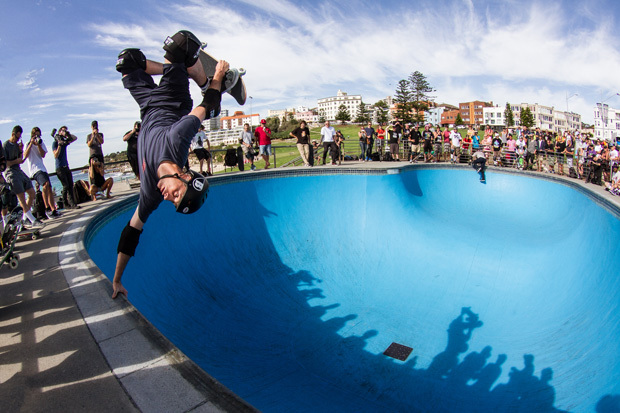
Tony Hawk, Bondi Skatepark, 2014
Despite how it might appear at face value, Tony’s foundation does much more than simply build skateparks. It builds people. It allows people to find something they like, something they can use to free themselves and their mind. It gives kids the option to pursue a healthy activity that doesn’t involve reliance on anyone else, and gives them an opportunity to create and learn. As Tony tells me, this concept is something he really believes in.
“Skateboarding helps to provide a sense of self-confidence and self-motivation to kids that they might not find in other sports, or even in other art forms,” he explains.
“The fact that you can set up your own challenge — you don't have to listen to a coach or organise practice times or anything like that, you can do it at your own pace, on your own terms. I think that resonates with a lot of kids.”
Like most labours of love, this passion stems from Tony’s personal life experiences.
“I just couldn't find a sense of self-confidence in other sports,” he reveals.
“I didn't like that the team relied on me for their own success, or that I relied on them for my success. So skateboarding was perfect for me... it was energetic, adrenaline pumping and also has an artistic factor that I was really drawn to. So I think that when cities finally agree to provide a facility, they tend to see how much positive use it gets and they end up building more. The first one is always the tricky one. The success of the first usually spawns more support for future endeavours.”
Of course, skateparks aren’t all that Tony has spawned over the years. His eldest son, Riley, recently turned professional for Baker Skateboards and is considered to be one of the brightest young talents in the skateboarding world. Believe it or not, Riley almost gave up skating just a few years ago. As Tony explains, he guided Riley into making an informed decision about his potential career as a skateboarder.
“Funnily enough, I watched Riley go in and out of skateboarding,” he laughs.
“He really enjoyed it when he was younger, but he became disinterested as he went into his early teens. It was around the time that he was 14 or 15 when he started getting exceptionally good at skateboarding, but he was still more engaged in other sports. I had to have a talk with him then.”
The talk, he says, opened Riley’s eyes and set him on the path to a professional career in skateboarding.
“You know, he was talking about maybe getting sponsored in motocross, or maybe surfing, and I just had to honestly tell him how I felt. I just told him that he was exceptionally good at skateboarding, especially for his age, and that if he wanted to forge out a career in something that skateboarding was the right choice. It certainly wasn't forced or anything like that. It was more like ‘here are your choices, and here is how far ahead you are in skateboarding’. And then I left the decision up to him.”
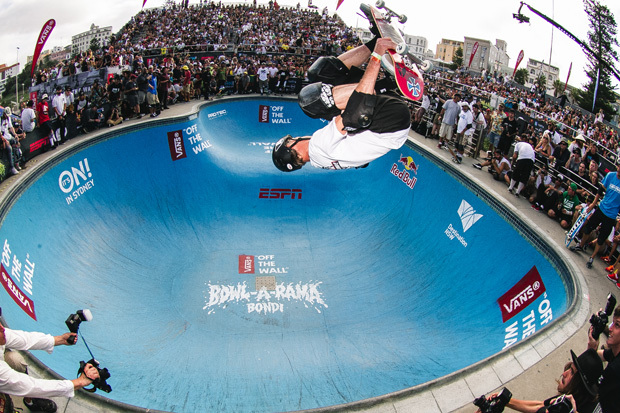
Tony Hawk, Vans BOWL-A-RAMA Bondi 2014
Controversially, Riley turned professional for Baker Skateboards, a company that directly competes with his Dad’s own company, Birdhouse Skateboards. It stirred all sorts of rumours in the skateboarding community when Riley quit Birdhouse, but for Tony this was all a part of the progression.
“I'm really proud of my son,” he says with with geniune pride.
“Just the fact that he's making his own way in skateboarding... it was always inevitable that he would go on to get his own set of sponsors. I'm incredibly proud that he's made an effort to get out there and really become recognised on his own accord, and for his own skills, not because of his bloodline. It's awesome that someone as prominent as Baker has recognised that skill and wanted to promote him. It’s all a part of the cycle, really.”
The cycle?
“The fact that Riley skates for Baker and that Andrew Reynolds (owner of Baker) used to skate for Birdhouse...that's the cycle, it's what we do. I started out at Powell-Peralta, and eventually left on my own to start my own company. So if I'm leading by example, I have to embrace that. Andrew is doing exactly what I did. Eventually maybe Riley will start his own company, who knows. It's the evolution of skateboarding. It's that self-awareness and entrepreneurial attitude of skaters. They want to go and do it themselves. It's DIY, and it always has been.”
That “do it yourself” attitude is something that has bled out into all aspects of Tony’s life since day one. Ultimately, it was that attitude which led him to take control of Birdhouse completely in 2008, knocking back juicy takeover offers from other brands, and begin to rebuild the struggling entity. And, in true Hawk style, it’s beginning to pay off.
“When I took over Birdhouse completely, I wanted to build up that respect that we used to have through putting together a really solid team, and I think we've slowly but surely been able to put together that team. I'm really proud of what we've created.”
He speaks with me in a very honest tone, and he’s perhaps more upfront when talking about his brand than any other subject.
“The fact that Birdhouse was invited to be in Thrasher’s ‘King of the Road’ Tour shows how far we've come, because I know very well that Birdhouse isn't necessarily a well-liked brand in the Thrasher world, but they saw that we have some of the world's best riders without question. So the fact that they invited us onto KOTR is something that I'm very proud of. It was a dream come true for the team. All Clint Walker (team rider) wanted in life was to be on KOTR, so it was something very special for all of those guys. I think he ended up scoring the most points for everyone, actually.”
For better or worse, Tony’s commitment to Birdhouse has fluctuated over the years — but it now appears that by applying himself completely to the brand, he has re-invigorated its image. It’s often wondered how much involvement Tony actually has within the Birdhouse company, but he assures me that he now has full control.
“I'm directly involved with every decision at the company,” he assures me.
“Advertisements, riders, tours, board graphics, the lot. It's been enlightening to get back to basics in that way and really be involved as a team, as opposed to some guys who have a team that doesn't connect, or that they aren't a part of. You need to be connected to be successful.”
Tony’s successes through his media forms, foundation, company and image have clearly been monumental in bringing skateboarding to its current high point. The amount of money being poured into contest series’ like Street League is unheard of, and the sport is reaching a mainstream audience through TV network coverage and viral internet campaigns at a rate we’ve never seen. Tony’s opinions on sports-arena events like Street League are mixed, however.
“Those guys in Street League are making money that we never dreamed of,” he laughs.
“The Street League format is interesting in that people can strategise and take advantage of their consistency, but it also leaves room for trying the same stuff over and over, which becomes monotonous. I think there's definitely a ‘best trick’ feeling to the contests. I don't think that's going to be the standard going into the future, because you can't adapt that format to all park, pool or vert competitions. Changes need to be made to keep the format interesting,”
Can we still expect to see Tony on the contest circuit in the future?
“I'm not out to break any more records or dominate contests, I just want to keep skating,” he admits.
“I've really just started focusing on what I'm really good at, which is the more technical tricks on vert. I'm having a blast. I'm still always trying to learn new stuff, and the fact that I still get to travel the world and ride my skateboard for a living is beyond a dream come true for me. I had no idea I could be able to do this, even into my 30's. I’ll still try and get to the odd contest, but for now it’s all about the enjoyment.”
“I’ll go wherever that enjoyment takes me.”
A couple of days later, Tony skated to victory in the Master's division at Vans BOWL-A-RAMA Bondi.
Special thanks: Brad Hocking and Azz Stroud Smith
CHARITY AUCTION: TONY HAWK'S SIGNED SKATEBOARD FROM VANS BOWL-A-RAMA BONDI 2014
Own a piece of skateboarding history. BID HERE NOW! (this auction is going live at 8:00 p.m. tonight, February 12th, AEST, and will be open for bidding for exactly 10 days).
100% of the proceeds will be donated to B-Rad Foundation.
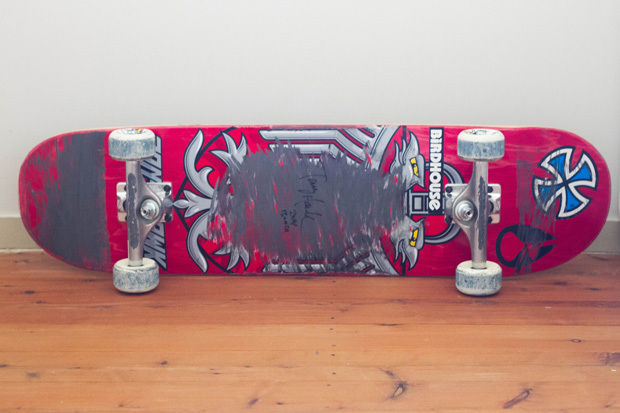
Tony Hawk was generous enough to donate his entire personally signed skateboard setup, which he used during his victory at Vans BOWL-A-RAMA Bondi 2014, to us here at Boardworld. The skateboard is being auctioned off for the B-Rad Foundation, a charitable foundation created in memory of our friend, Brad Lentz.
On July 3, 2011, Brad Lentz was tragically killed by a drunk driver in a motor vehicle accident in Penticton, British Columbia. Brad’s wife Nancy Lentz was seriously injured in the accident and is very grateful to the ambulance and emergency services that came to her rescue, saving her life. Although Brad did not survive, Nancy is forever indebted to the people that did their best for Brad and were able to help her.
Brad is the inspiration behind the creation of B-Rad Foundation. Brad was affectionately given the nickname “B-Rad” by his friends because of his positive attitude and the consistent support he gave anyone aspiring to achieve their goals. In the eulogy at his funeral, his brother-in-law affirmed “we can all be a little more like Brad…,” paying tribute to his strong values and uplifting spirit.
Nancy adds, “Boardworld and the community of people that support Boardworld have been a major part of supporting B-Rad. It truly is amazing the outpour of support we have received. I thank Boardworld for its hard work and dedication to supporting this cause and Brad’s legacy. It is amazing that Tony Hawk even knows about B-Rad and I know Brad would think that is awesome.
It is our hope that B-Rad can work with Boardworld to use the proceeds from this auction of the skateboard signed by Tony Hawk towards a grant or scholarship for a talented and passionate young person in your community that lives like Brad.”

Independent Eric Koston II Forged Trucks
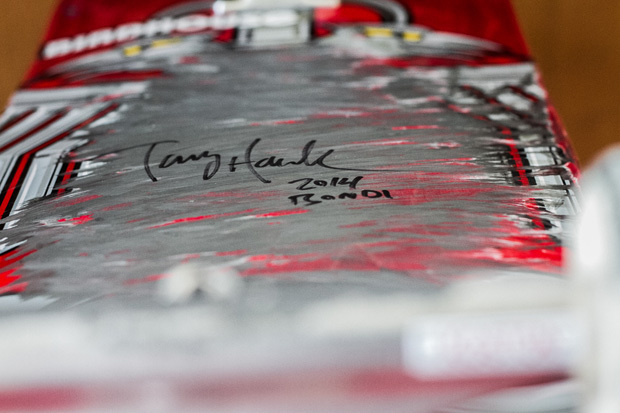
Tony's authentic autograph in all its glory
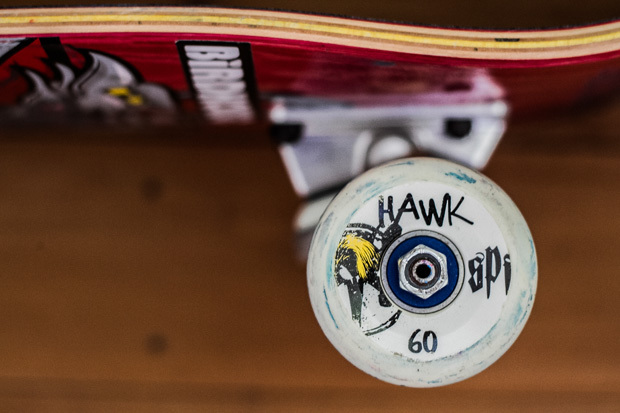
Bones 60mm Tony Hawk signature wheels
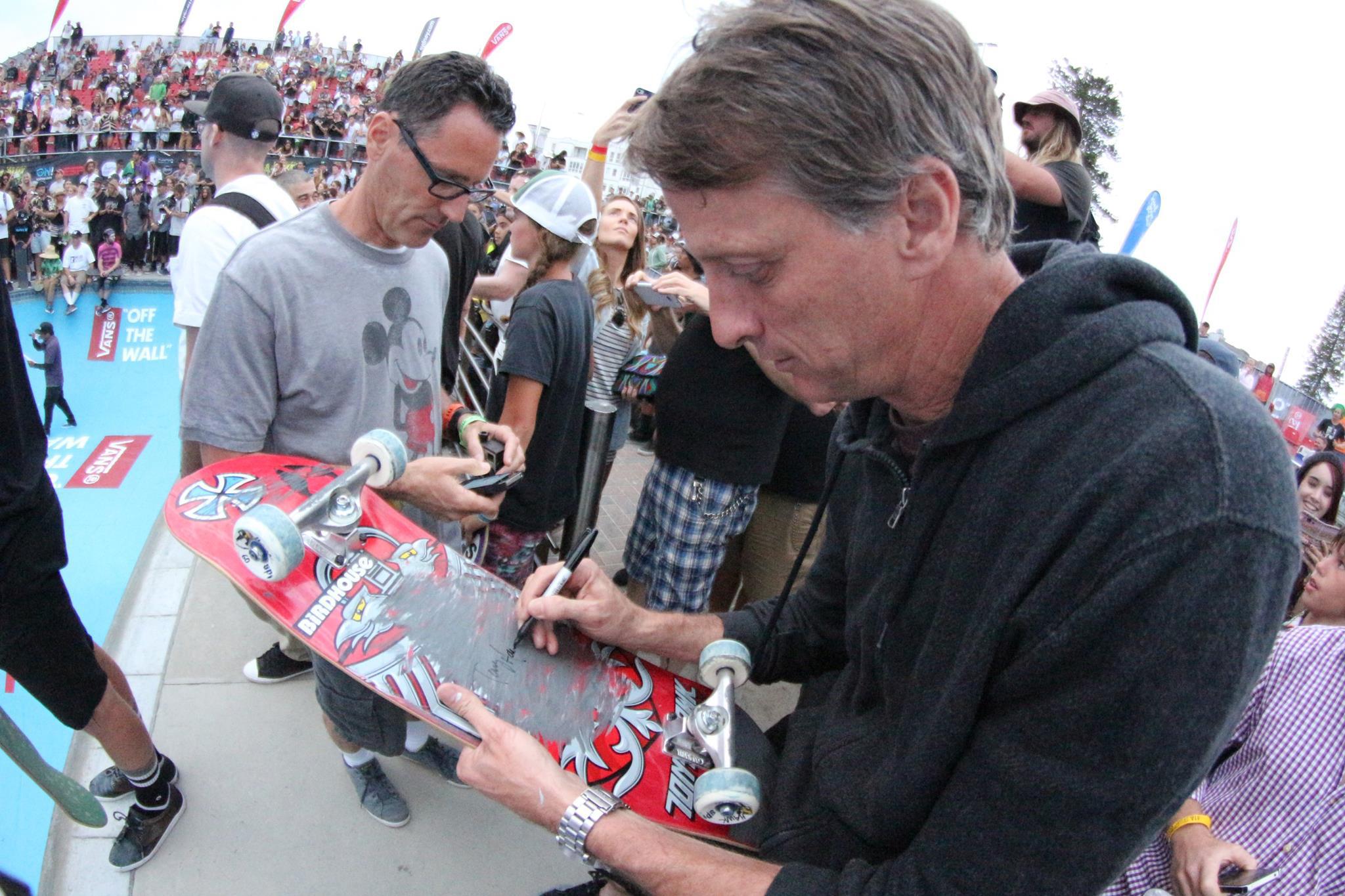
Tony signing the board
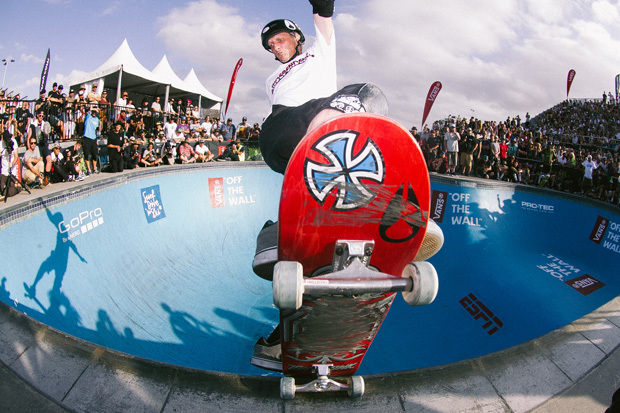
The board in action during Tony's victory at Vans BOWL-A-RAMA Bondi 2014
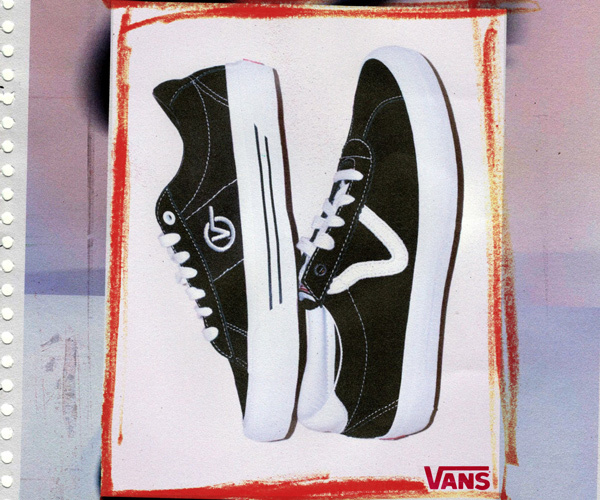
Ads Served by the Boardworld Ad Network
